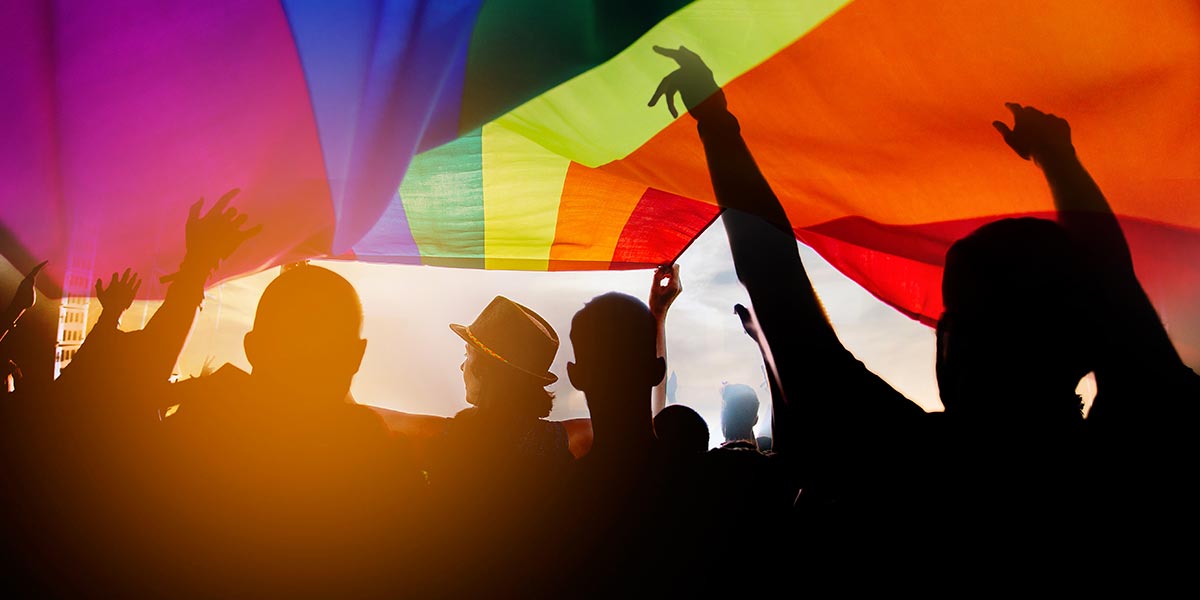How might our outlook on gender and sexuality change in the next decade?

It’s plain to see that the global LGBTQI+ community have seen great strides being made over the past ten years.
In this past decade, the number of countries that recognise same-sex marriage went up from just seven in 2010, to 28 in 2020. The number of countries that have protections for LGBTQI+ citizens in place, especially insofar as these safeguard employment, rose from 49 to 77 over the same period.
As acceptance of gay people grew, the fight for transgender rights moved to take centre stage in the last decade, and the media started reflecting this new focus in a number of acclaimed and popular TV programmes and films.
The conversation about gender and gender identity began gaining more participatory voices, and against the backdrop of bathroom bills, ballroom culture and non-binary celebs, the Merriam-Webster Dictionary chose the pronoun “they” as their Word of the Year in 2019.
At the start of a new decade, and considering how much has gotten better from 2010 to 2019, we might ask how the world’s perspective on sexuality and gender could change over the next ten years.
Sex for the sake of sex?
Our views on the role of sex certainly have varied drastically over the course of the centuries that preceded our own. While the purpose of sex was long considered and accepted to be procreation, the twentieth century and the myriad of birth control options it brought, together with the sexual revolution of the 60s, moved the focus to sex for the sole purpose of pleasure.
This newfound liberation would be put under great strain in the 1980s, at the height of the AIDS crisis. For gay people, procreation had almost ever only been the purpose of sex if they decided or were forced to marry someone of the opposite sex, anyway.
But with almost four in 10 Millennials not identifying as “completely heterosexual”, according to one survey, we may again have to take a good, hard look at the ethics surrounding intercourse in the next decade. The looming threat of AIDS has been greatly curbed, thanks to efficient antiretroviral treatments and the widespread availability of prevention measures like PrEP. While it definitely isn’t a non-issue just yet, we now live in a society that is more tolerant towards the LGBTQI+ community than it has ever been before.
Might we see another sexual revolution, led by the homosexual community, in the roaring 20s? As the climate change catastrophe plays out in front of our eyes, will people again have sex for the sake of having sex? Time will tell.
An expanded view on gender identity
The 2010s brought a host of gender identities that had not been widely known before into the mainstream. People now openly identify as transgender, non-binary, asexual, gender-fluid, pangender and genderqueer, with the world’s biggest social network even expanding the custom gender options for its users. Still, there is talk over whether these options realistically encapsulate everything gender can be in the modern age.
Me Too, Time’s Up and other social justice movements have highlighted the way in which traditional gender roles contribute to gender-based violence and sexual harassment, but they have also brought into question whether these roles have any place in a modern society at all.
Sociology Professor and Faculty Professional Development Coordinator at Los Angeles Valley College, Sally Raskoff, speculates that redefining gender roles could have far-reaching consequences in a society still dominated by straight, white men.
“Should we be successful, what else would change? The gendered patterns in domestic violence, sexual harassment, sexual violence and other forms of victimisation could be nonexistent. The pay gap, the achievement gap, the glass ceilings, cellars, and escalators could cease to exist,” says Raskoff.
“Girls wouldn’t drop out of math and science and other pursuits when they approach puberty, as they tend to do now. Boys could play with dolls and learn to be nurturing people who then would father their children differently than they do now. Bullying and homophobia would cease to exist as diversities of sexual orientation and expression would also be part of the outcome of toppling gendered power structures. One gender would no longer dominate political power positions, thus government resources would most likely flow in a multitude of diverse directions.”
Yes, important progress has been made since 2010, but there is still a lot of work to be done to ensure the safety and livelihood of all members of the LGBTQI+ community. While our crystal ball can only provide vague suggestions of what the future may hold in terms of gender and sexuality, we can be sure that the world will be a very different place ten years from now.
Leave a Reply